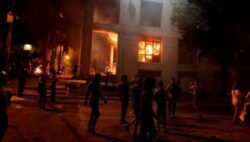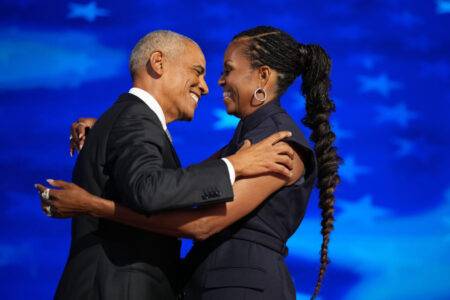Paraguay congress set on fire amid presidential controversy
Demonstrators in Paraguay have set fire to the country’s Congress amid violent protests against a bill that would let the president seek re-election. Protesters stormed the legislature, breaking windows and fences.
Thousands of Paraguayans on Friday night took to the streets to protest against the decision of their country’s Congress to amend the constitution to allow for presidential re-election – a move that would allow right-wing President Horacio Cartes to stand in 2018.
The country’s 1992 constitution, introduced after 35 years of dictatorship, states that in “no case” can the president or vice president be re-elected. Presidential terms are limited to a single five-year term.
But sitting President Horactio Cartes is attempting to remove the restriction and run for re-election. Cartes’ opponents have argued that only a constituent assembly has the power to amend the constitution, warning that the recent decision could spark further confrontations.
Protesters were photographed setting fire to barricades in the streets of Asuncion, near the congress building, on Friday night. Police used rubber bullets and water cannons to disperse the crowd. Earlier, the crowd took to the streets following a private meeting of senators, which approved a bill to amend the constitution.
The bill must also be approved by the other house of parliament – the chamber of deputies – where President Cartes’ party holds a majority.
Amid flared political tensions and cries of a “parliamentary coup,” Paraguay’s Senate paved the way Tuesday for the approval of a hotly controversial constitution reform by pushing through a change in internal regulations to make the impending vote possible.
Recent polls show that a majority of citizens oppose allowing presidential re-election. Around 77 percent of Paraguayans are against it, on the grounds that it would violate the nation’s constitution.
Even so, polls show Fernando Lugo as the country’s favorite candidate, with more than 50 percent of voters saying they’d cast their ballot for him. Beyond revealing a certain inconsistency in voter sentiment, these numbers demonstrate that Lugo is significantly more popular than Cartes who garnered only 12 percent.






